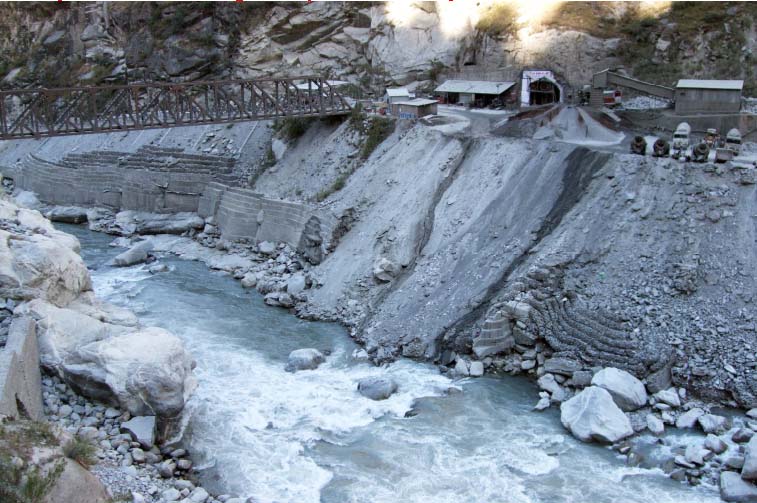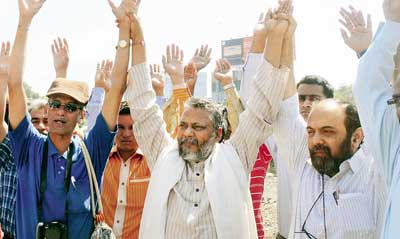Government Programmes
Recommendations of Working Group on Agriculture to increase agricultural production and productivity in the country - PIB release
Posted on 12 Apr, 2011 05:40 PM
A summary of major recommendations of Working Group are as follows: -
Groundwater use in Aurangabad – A survey and analysis of social significance and policy implications for a medium-sized Indian city by GW MATE and World Bank (2008)
Posted on 12 Apr, 2011 01:17 AMAurangabad, a city in central Maharashtra is in a drought prone region, and being a rapidly urbanising town, is facing a lot of pressure on ots water resources. Besides importing water there has been an increasing trend of ground water extraction.
In this context, a survey of groundwater use was conducted as part of a World Bank study on Indian groundwater management. The study was a collaboration between GW MATE(Groundwater Management Advisory Team) and GRASP (Grass Roots Action for Social Participation), an Aurangabad-based civil society organization working on community-based natural resource management.
New policy framework for rural drinking water supply: Swajaldhara guidelines – An article by Philippe Cullet in Economic and Political Weekly
Posted on 11 Apr, 2011 07:09 PMIt examines its evolution from the 1970s onwards and focuses, in particular, on the reforms of the past decade, looking more specifically at the Swajaldhara Guidelines. These reforms are of capital importance because they seek to completely change the rural drinking water supply policy framework.
Role of civil society in sanitation improvement - A case-study from the work of Parivartan in Uttar Pradesh (2010)
Posted on 11 Apr, 2011 12:33 AMThis presentation prepared by the founders of Parivartan, a Kanpur based NGO, deals with the organisation's efforts to improve the sanitation system of the town by involving local citizenry.
Captain SC Tripathi, the founder of Parivartan explains that his organisation is based on a 'collective' model where in all aspects from ideation to implementation is a collective effort. This model seemed appropriate considering the different problems that Kanpur was facing ranging from sanitation issues to drainage, power outages etc. Added to this was political and official apathy, indifference and cynicism of citizenry.
Water management through communities in Uttarakhand - Neelima Garg
Posted on 28 Mar, 2011 06:36 PMThe conflict is over how water is perceived, valued and treated. Water is life savior elixir. The importance of water as a vital resource to the life system and an essential component of societal development cannot be over emphasized. Over the years, many ancient civilizations emphasized on various mechanisms of water collection & distribution.
MoEF reconsitutes the National Coastal Zone Management Authority
Posted on 24 Mar, 2011 01:32 PMthe Central Government constituted the National Costal Zone Management Authority for a period upto the 31st December, 2010.
And whereas, the Central Government is of the view that such an authority must be reconstituted.
India’s water sector: The performance and challenges – A presentation by Himanshu Thakker of SANDRP
Posted on 23 Mar, 2011 11:44 PM The sector is marked by large-scale water development projects like big dams.
The sector is marked by large-scale water development projects like big dams.
National mission for a green India - Presentation to the PM's council on climate change - Latest update from the MoEF
Posted on 22 Mar, 2011 04:15 PMThe draft was made available in 11 languages.
There were 7 regional consultations held at Guwahati, Dehradun, Pune, Bhopal, Jaipur, Vizag and Mysore over a month and a half starting from 10th June to 15th July and attended by the Minister and the team.
43 projects sanctioned under Mission Clean Ganga - MoEF press release
Posted on 22 Mar, 2011 12:44 PM It's mandate is to ensure effective abatement of pollution and conservation of the river Ganga by adopting a holistic approach with the river basin as the unit of planning.






